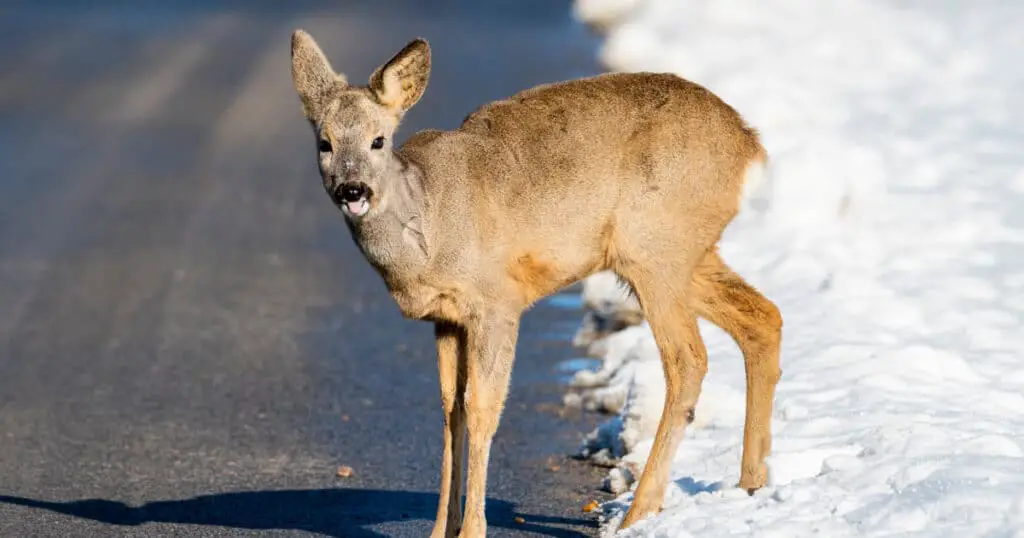Rabies is a terrifying and devastating disease. One of the reasons there is so much fear about it is that Rabies can affect any and all species of mammals. It can even infect and lead to death in human beings, so you must be extremely careful to avoid contact with this disease. So, can deer get rabies?
Yes, deer can get rabies. While rabies isn’t nearly as common in deer as it is in some smaller animals (such as raccoons), it can certainly occur in deer species. If you’re a hunter or live in an area with deer, you should be aware of this and learn how to keep yourself safe.
What is Rabies?
Rabies is a fatal disease called by a viral infection. The rabies virus first gets into the bloodstream and then attacks the central nervous system and brain. Rabies can infect any and all warm-blooded animals.

In the United States, rabies is most commonly found in wild animals such as raccoons, bats, skunks, feral cats, coyotes, and foxes. Humans can get rabies and it is fatal in all species.
An average of between 7,000 and 9,000 of these animals are found to have rabies every year in the United States. Experts believe that there are many other cases that are never detected, as the animal simply dies unnoticed. Raccoons are the species with the highest known incidence of rabies, making up half of the cases.
When animals other than raccoons have rabies, in many cases they have caught the virus from a raccoon bite. Rabies causes a disease that creates more damage as it progresses, attacking the nervous system, causing paralysis, and leading to death. Once symptoms of rabies first show up, death will generally happen within days.
How is Rabies Transmitted?
An animal may catch rabies from contact with the saliva or tissues (especially nervous tissue) of an infected animal. If a human has possibly been exposed to the virus, treatment is needed immediately. This treatment can stop the disease from developing. If rabies develops, it is a fatal disease.
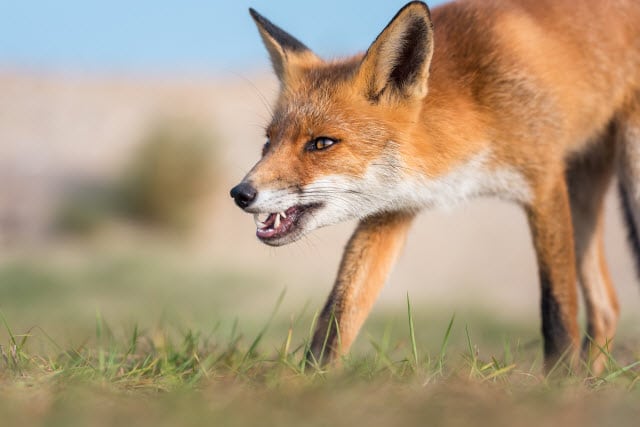
One common method of transmission is a bite from an infected animal. The rabies in the animal’s saliva will get into the victim’s bloodstream.
What are the Symptoms of Rabies in Deer and Other Animals?
Symptoms of rabies include:
- Lack of fear of humans
- Aggressiveness
- Discharge from the nose or eyes
- Difficulty with balance
- Paralysis of both back legs, or one of the back legs
- Behaving as if injury in back legs
- Walking around in circles
- Confusion
- Lethargy
- Excessive salivation
- Deer struggling while on the ground
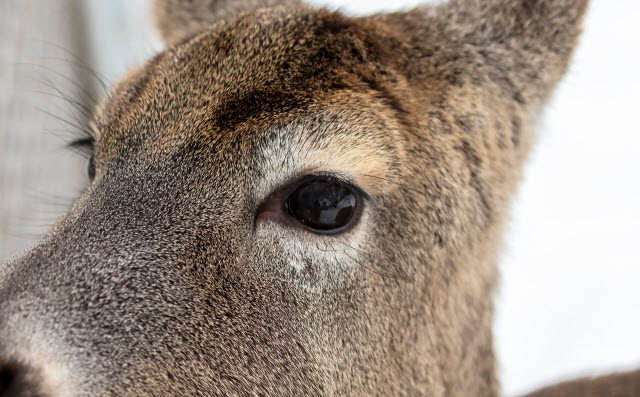
If you are familiar with CWD (chronic wasting disease), a disease found in deer, you will know some of its symptoms are similar to those of rabies. For example, deer with CWD often show confusion, lethargy, problems with balance, and lack of fear of humans. Like rabies, CWD is a fatal disease.
Should You Be Worried About Rabid Deer?
Rabies is quite rare in deer. In many cases, deer get the disease by a bite from an infected smaller animal, such as a raccoon, fox, or coyote. This may happen when a deer is eating in an area where there is a rabid animal.
If you notice a deer acting in a strange way and you think there’s any chance they may be rabid, stay away from the animal.
Be aware that humans can catch rabies if they make contact with the infected animal’s bodily fluids or flesh. On average, between one and two people die from rabies each year in the United States. In most cases, this happens as a result of the victims not recognizing they have been exposed to rabies and not seeking treatment as a consequence.
You may have heard alarming stories of stomach shots as treatment for rabies. Fortunately, treatments have advanced. That kind of treatment fell out of use decades ago. There is a much more modern (and less painful) treatment available today.
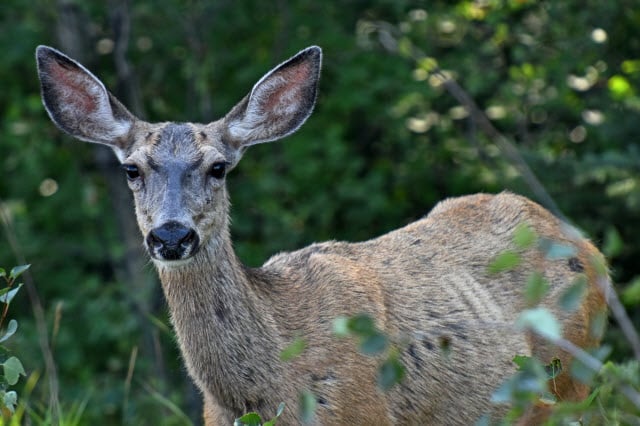
If you feel there is any chance you have been exposed to rabies, you must seek immediate medical treatment. Failure to do so could result in death.
Precautions for Deer Hunters
If you’re a deer hunter, there are certain processes and procedures you should use to keep yourself as safe as possible.
First and most importantly, never approach a deer that is acting strangely and never eat its meat. If you notice any signs or symptoms of potential rabies, stay away from the animal and report it to wildlife authorities.
Also remember these other guidelines:
- Always wear rubber, latex, or nitrile gloves when doing field dressing.
- Never let your pets get near where you do field dressing. They may be at risk if they make contact with infected body tissues and fluids.
- Avoid handling the spinal cord and brain as much as possible.
- After you do field dressing, carefully wash your instruments, boots, and hands.
- If you decide to use commercial processing, ask for the deer to be processed by itself. You don’t want it making contact with other animals.
Remember, never eat meat from an animal that is potentially contaminated or infected with rabies. And whenever you eat any kind of meat, cook it correctly and thoroughly at the right temperatures.
Be aware that while thorough cooking is capable of killing the virus, you should never even think about taking any chances with eating the meat of a rabid animal. If you think there is any possibility at all that a deer has had rabies, don’t touch or eat the meat.
What is Chronic Wasting Disease?
As mentioned earlier, there is some overlap between rabies and chronic wasting disease (also known as zombie deer disease).
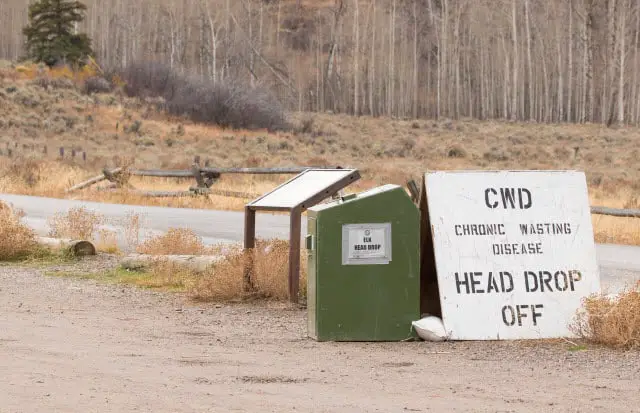
When you see a deer seems to have symptoms of either of these conditions, never assume which one it is. Chronic wasting disease is caused by abnormal prions that attack the brain and nervous system. While there isn’t any proof yet that it can infect humans, it is possible that it could.
Rabies, of course, has been proven to infect humans and is always fatal if treatment isn’t promptly sought.
Deer Can Get Rabies, So Be Aware
If you spend time in the outdoors or are a hunter, always stay aware of rabies and its dangers. Avoid contact with any wild animal that has been behaving strangely, and make contact with local authorities or park rangers so that they can address the situation to keep you and others in the area safe.

